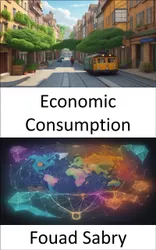What is Living Wage
A living wage is defined as the minimum income necessary for a worker to meet their basic needs. This is not the same as a subsistence wage, which refers to a biological minimum, or a solidarity wage, which refers to a minimum wage tracking labor productivity. Needs are defined to include food, housing, and other essential needs such as clothing. The goal of a living wage is to allow a worker to afford a basic but decent standard of living through employment without government subsidies. Due to the flexible nature of the term "needs", there is not one universally accepted measure of what a living wage is and as such it varies by location and household type. A related concept is that of a family wage one sufficient to not only support oneself, but also to raise a family.
How you will benefit
(I) Insights, and validations about the following topics:
Chapter 1: Living wage
Chapter 2: Minimum wage
Chapter 3: Employment
Chapter 4: Wage
Chapter 5: Salary
Chapter 6: Labour power
Chapter 7: National Minimum Wage Act 1998
Chapter 8: Poverty in the United Kingdom
Chapter 9: Minimum wage law
Chapter 10: Minimum wage in the United States
Chapter 11: Compensating differential
Chapter 12: Monopsony
Chapter 13: Wage theft
Chapter 14: Tipped wage
Chapter 15: Fight for $15
Chapter 16: National Living Wage
Chapter 17: Living Wage Foundation
Chapter 18: Unemployment in Hungary
Chapter 19: Seattle's minimum wage ordinance
Chapter 20: Wage growth
Chapter 21: Local purchasing
(II) Answering the public top questions about living wage.
(III) Real world examples for the usage of living wage in many fields.
Who this book is for
Professionals, undergraduate and graduate students, enthusiasts, hobbyists, and those who want to go beyond basic knowledge or information for any kind of Living Wage.
























